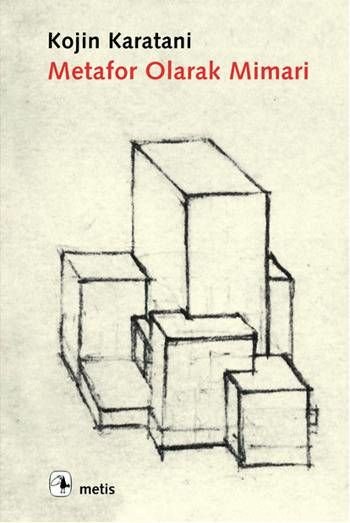
Metafor Olarak Mimari
As the name suggests, this is a book that cannot be easily placed in any of the classical disciplines. Yes, there is architecture in the book, as you know, but there is also linguistics, mathematics and economics, and even an enjoyable tour of philosophy from Plato to Kant, from Marx to Wittgenstein. The basic concept of the book is "architectural will". Karatani, who looks at the Western tradition of thought from a country far away from Japan, where he says that there is no such will, says that on the basis of the Western tradition, Plato puts forward "doing" in the face of "becoming" - the attempt to create a "structure" that will eliminate indecision and uncertainty. He sees his interest. He sees the obsessive repetition of architectural metaphors throughout the history of Western philosophy as the result of an "irrational" choice to re-establish order and structure in a seemingly chaotic "becoming". In this respect, Karatani's work can be included in deconstructionism. However, rather than staying there, he places himself within the tradition of criticism that Kant started and that Marx and Wittgenstein continued in completely different forms. Because, in a way, Karatani also affirms the will to establish and build. He is not in favor of confronting "becoming" by affirming "becoming" like the Romantics; he argues that becoming is not a chaotic thing, it has a detectable form. According to Karatani, architecture - making, building, building - is never just the realization of the design as an idea, but "a perfect event in the sense that it is a structure or formation beyond the control of the maker." This is an extremely practical observation about life and today's world: It says that a solipsistic or pure design - and therefore a structure or system - is not possible, independent of the possible relationships that can be established with the other who does not share the same common rules with us.
(From the Promotional Bulletin)
Dough Type: 3rd Dough
First Printing Year: 2006
Size: 14x21
Number of Printings: 4th Edition
Number of Pages: 216
Media Type: Paperback
| Publisher | : | Metis Publishing |
| Number of pages | : | 216 |
| Publication Year | : | 2017 |
| ISBN | : | 9789753425513 |
| The heart | : | Turkish |
Üye olmadan sipariş verebildim.
Ayrıca, kargo süreci hakkında da sistem üzerinden güncel olarak bilgilendirildim.
Memnuniyet duydum.


